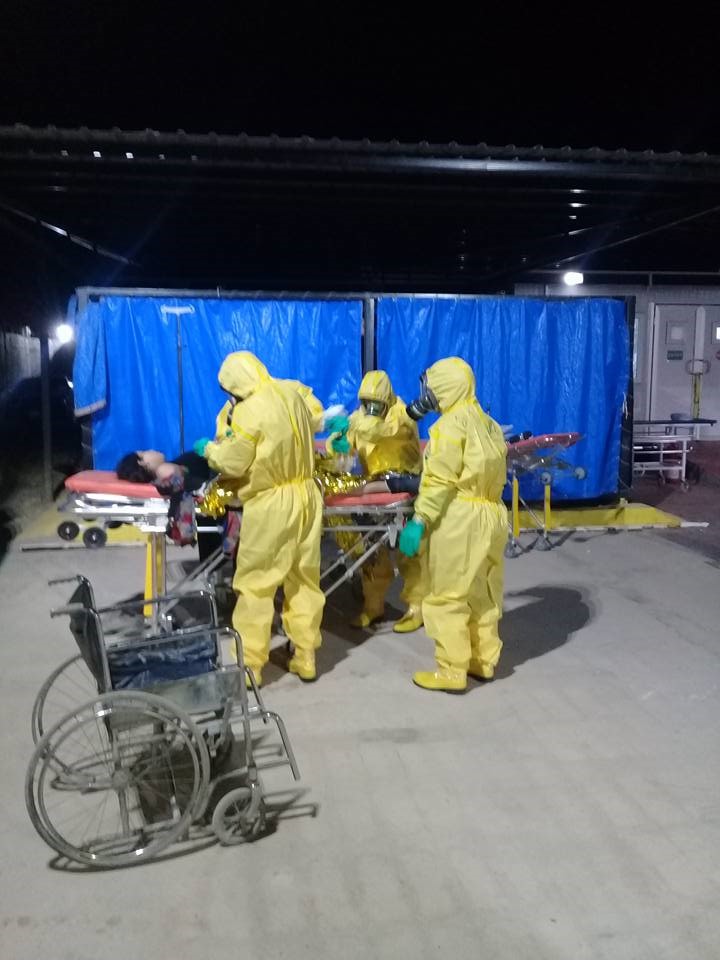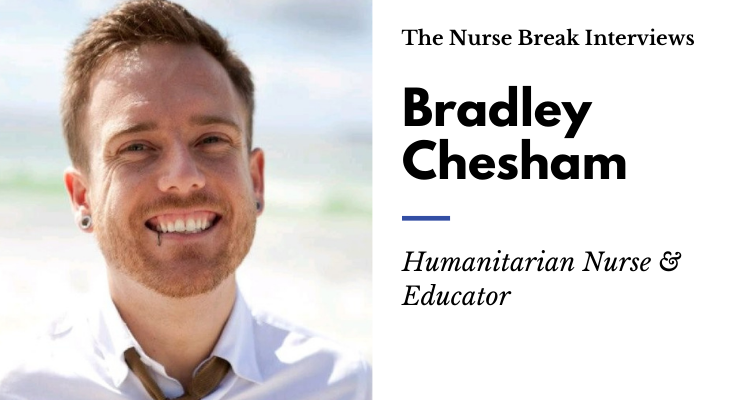Table of Contents
Meet Bradley Chesham!
Bradley is currently based in South East Queensland and has mixed acute tertiary intensive care nursing experience along with remote medicine. He has deployed as a nurse within Mosul, Iraq, Afghanistan, Mexico, Norway and many more and he is even registered as a nurse in Papua New Guinea. During his career, he has always taken pride in ongoing knowledge and skills development and has recently worked very hard to establish a new nursing education startup company launched in 2018 – Bundle of Rays.
Join our new FB group Rural & Remote Nursing | The Australian Outback
Similar Humanitarian nursing articles
Nursing in Iraq…
Context: Mosul, Iraq.
The urban fighting in Mosul that began on October 16, 2016, was described by U.S. officials as the most intense since World War II. Backing Iraqi forces on the ground, the U.S.-led coalition, which included a dozen partner countries, carried out more than 1,250 strikes in the city, hitting thousands of targets with over 29,000 munitions, according to official figures provided to us.
An operation to liberate Mosul was launched on 17 October 2016 with the aim of retaking Mosul and the swathe of territory in northern Iraq captured by IS militants in 2014.
Progress was initially swift, with pro-government forces advancing from the north, south and east, seizing outlying towns and villages despite strong resistance.
Iraqi special forces first entered Mosul on 1 November 2016.
But progress slowed as troops encountered fierce resistance from IS, including snipers, suicide bombers and shellfire.
I arrived 2 weeks before the Iraqi army finally “liberated” Mosul. I watched as they dropped leaflet propaganda from helicopters that flew above. I witnessed a lot of other things during that trip.
When you start your nursing career, you have no idea where that path is going to take you.
Promise me, you have NO idea.
Mid 2017, I went to war for the second time. I flew into Erbil, Iraq. If I am really honest, I thought I would be fine. I kind of wasn’t.
Up until this point, I did a tour in Afghanistan in Camp Bastion, I worked in Guinea, Africa, Matamoros, Mexico, Papua New Guinea twice and I have even been up to the North Pole near Svalbard and Tromso and Hammerfest in Northern Norway, Scotland, England etc.. Just not Antarctica. Nursing has taught me many things. How to take care of patients suffering from weapons of mass destruction, was none of these things until I arrived in Iraq.
Perspective
Before I unravel the doom and gloom of my experience I want to talk about the inspiration. If you have never worked alongside, met or observed military nurses or nurses in a conflict zone and how they conduct themselves, you should. They are inspirational. Head down and get shit done, no complaining, no wondering, just work. They also don’t post shit on Instagram, it’s not about that. it is so much more. Mortal risk is a thing, and everyone is in it together, true teamwork.

The poverty, the struggle that I witnessed during my time in Mosul will never leave me. We would run out of oxygen with critically ill patients, burns victims we couldn’t treat due to a lack of resources, head-injured patients that we would simply watch deteriorate, orphans arrive lost and confused because they have been involved in a blast and have lost their family, their neighbours, everything.

Resilience
Then there was the query chlorine attack. Chlorine is a weapon of mass destruction and was labelled that by the UN after WWII. To this day, I still don’t know what it was but it wasn’t good. We had multiple victims arrive with severe inhalation injuries and decreased consciousness. We had a chemical shower decontamination area out the front of our hospital and this is where I was working.

We had to strip the patients, most GCS <10 but we could not risk sending them inside if they were covered in Chlorine, as it would affect the rest of our team. 5-10minutes to decontaminate and then straight through. All sadly died within 6-8hrs of arriving through pulmonary haemorrhage and hypovolemic shock. We only had one ventilator and little oxygen. An aunty of one of the young girls that passed away, arrived hours later to explain that she believed a stray rocket had hit the girls apartment building.
It turns out they were the wives of ISIS soldiers and they had a storage area of Chlorine in the basement. When the stray rocket hit the building, it ignited the chlorine and ripped through the closed environment, injuring and later killing everyone inside. This is just one story that happened one day. Iraq was at war with ISIS for years…

I have kept in contact with the local nurses I worked with in Iraq. They were absolute legends. I am even currently raising money for them to help the local university provide simulation equipment to their nursing students. If you’re interested in my story, I did a podcast recently you can watch it here.
Hope
When I got home it took 2 weeks for my blood pressure to come under 180/100mmhg. I was 36 yrs old. Out of all the crazy shit I have done, this was different. It was far and away the most rewarding. People talk about being happy, I am aiming for content. Knowing I helped make a difference sounds cheesy but that’s what I trained for,
What did you train for?

Author: Bradley Chesham
Looking for our next guest! Are you / do you know of an Aussie healthcare worker or student who would like to write about your/thier career, area of speciality, unique experiences or other nursing/midwifery/allied health related content? Please email us at hello@thenursebreak.org to discuss further or check out the Write for TNB Info Page on the website.






You must be logged in to post a comment.